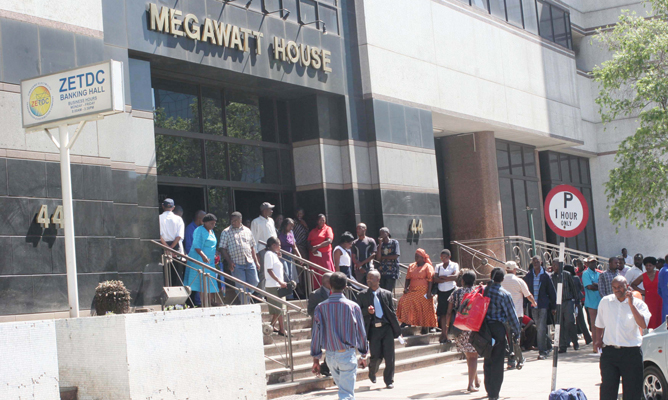
Zesa Holdings has once again assured consumers that they will not experience any load shedding this winter as the power utility has secured electricity from various sources.
BY VICTORIA MTOMBA
In an interview, Zesa stakeholder relations manager Fullard Gwasira said the company had completed maintenances to ensure greater plant reliability.
“Our projections indicate that there will be no load-shedding for all customer categories during this winter. We are also getting imports from Mozambique and Eskom [South Africa] to augment local supplies,” he said.
“In addition, we expect additional 40 megawatts (MW) of power from Harare Thermal Power Station and the 200MW from Dema. We have engaged farmer bodies and if their demand is the same as last year, indications are that we will be able to meet them. Eskom is giving us between 50-300MW.”
Farmers were currently preparing for the winter wheat season, which in the past has been severely hampered by power cuts.
Zimbabwe Commercial Farmers’ Union president Wonder Chabikwa said they expected the power utility to provide electricity without interruption for the wheat crop as the sector hugely relied on irrigation.
- Chamisa under fire over US$120K donation
- Mavhunga puts DeMbare into Chibuku quarterfinals
- Pension funds bet on Cabora Bassa oilfields
- Councils defy govt fire tender directive
Keep Reading
“Winter wheat in Zimbabwe is 100% irrigation. Therefore, there is need for power supply and also for Zesa to attend to faults promptly,” he said.
Chabikwa said farmers wanted to put 100 000 hectares under the crop, but they have not yet found funding, making it difficult for them to increase the hectarage.
He said the cost of production was too high, making local wheat more expensive than imported wheat.
Chabikwa said for a farmer to plant a hectare of wheat, they required $2 600.
Commercial Farmers’ Union deputy director Marc Wilson said the union anticipated to have the same output as last year due to viability challenges.
“Electricity was available last season and load-shedding was not much and this year, we are hoping it will be the same. We will engage ZETDC [Zimbabwe Electricity Transmission and Distribution Company] on power issues, especially on their response to faults because they are usually slow to respond, but with wheat, it is a crop that relies on irrigation,” he said.
Wilson said the price of wheat last year was disappointing and made it difficult for local farmers to compete with imported wheat.
He said it was difficult to produce wheat without a market as in most cases millers would have contracts with some farmers.
Grain Millers’ Association of Zimbabwe chairperson Tafadzwa Musarara said the milling industry required at least 320 000 metric tonnes of wheat annually for the production of flour for bread, confectionery and by-products for stock feeds.
This year, winter wheat contract farming is the smallest since 2008 due to the influx of imported flour from Mozambique and South Africa.
“We are going to import nearly 300 000 metric tonnes of wheat mainly, for gristing.The issue of continued flour imports is affecting the viability of wheat farming in Zimbabwe and also the local milling industry,” he said.












